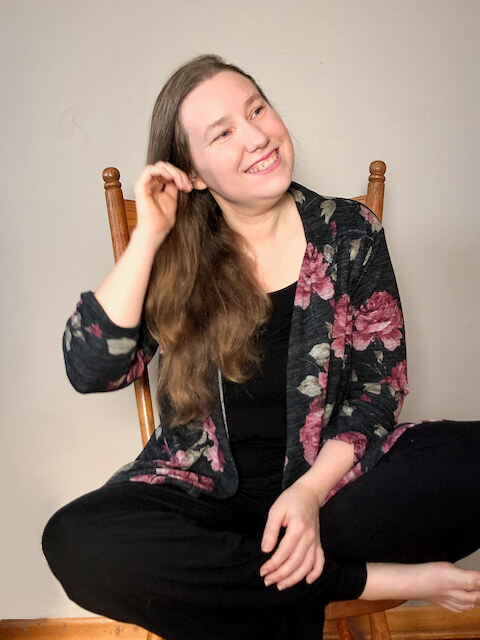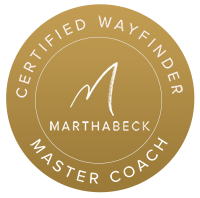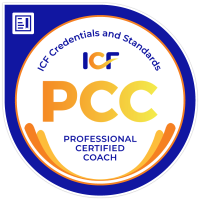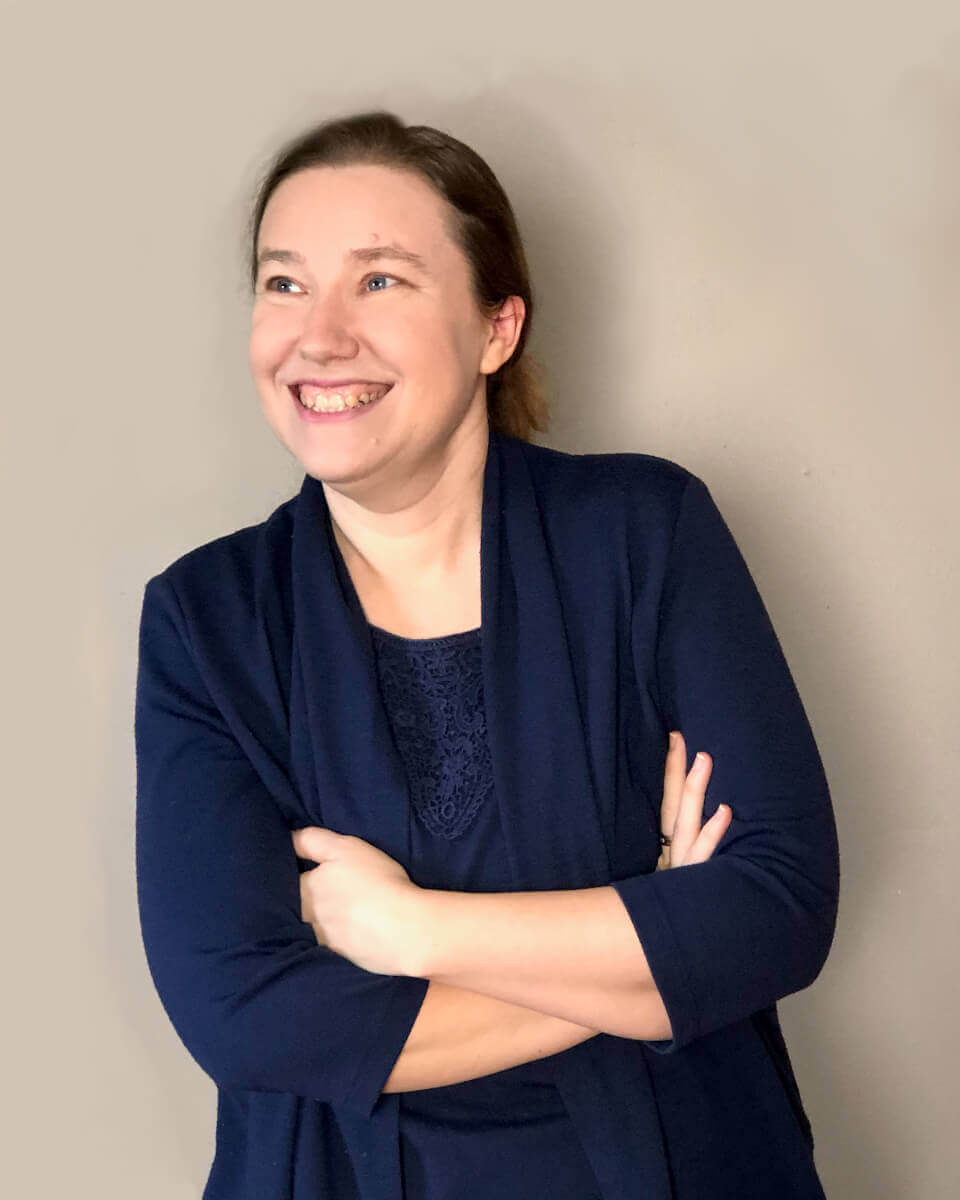When you find out you’re Autistic as an adult, all of a sudden so many things make sense. You’ve always known you were different. And now you know you were right.
But you still have all of this conditioning from a lifetime of believing you were broken, or terrible at being a person, or fundamentally flawed.
And patterns of handling things, and reacting, and masking, that made sense before, but that are holding you back now.
One of the hardest parts? Realizing how long you’ve been fighting yourself. Abandoning your needs. Silencing your truth. Shrinking your voice for other people’s comfort.
I get it, because I've been there.
This was me several years ago.
There’s validation and relief in finally understanding, but also confusion and anger and regret.
And honestly, you probably just want to get through the day without feeling exhausted and frustrated.
But also…is there a little flicker of hope…that you might find help that’s actually helpful?
Here’s what I’ve learned: You don’t need to recover from autism. You need to recover from pretending that functioning “normally” wasn’t damaging you. A functional Autistic life doesn’t come from imitating a neurotypical life.
When you learn you’re Autistic, you have all these revelations about why things happened the way they did. And why you are the way you are. And what you really need. That opens doors to learning better ways of approaching the hard things in your life. So you can build a life that actually works for you.
But how do you actually do that???
That's the Journey I help people take.


Hi, I’m Heather of Autism Chrysalis, and I work with people who’ve figured out, mostly in adulthood, that they’re Autistic.
And now all of a sudden so many things make sense, but you still have all of this conditioning from a lifetime of believing that you were broken, or wrong, or terrible at being a person, or all sorts of stories that we told ourselves.
And there are reasons for those stories, but they aren’t entirely true, yet when we believe them, they affect us in the same way as if they were.
So I help people deconstruct what’s true and what’s not. And how to deal with the parts that are true, and how to dissolve, or resolve, the parts that aren’t. It’s not just saying, “let it go,” it’s the how of letting go of decades worth of shame, and blame, and guilt, from not fitting in and being different and struggling with people, and getting things wrong. Most of the time you probably try to push that away and not think about it…except that’s not entirely possible.
It still leaks out around the edges, often in the form of anxieties or depression, fatigue, and sometimes chronic illnesses may be exacerbated because of the self-loathing and blame that we carry, that isn’t ours to carry, at least not entirely.
By the way, all of this was me just eight or nine years ago. I had to work through all of that myself after I figured out at 34 that I’m Autistic, too. I got a formal diagnosis at 35, and it was one of the hardest things, and the best things, that’s ever happened in my life.
I worked through a lot of crap in those first three years especially. And as I worked through more of it, and the shame dissolved bit by bit, I started getting my energy back from my last burnout, it started healing in new ways than it had in previous iterations of burnout. Things started feeling genuinely different.
I felt lighter. I started getting interested in things again, started getting excited about new possibilities, and approaching old things again for the first time in this Second Chance life that I was building for myself.
And I started relating to people in different ways. Learning healthier communication patterns that were more genuinely autistic and worked better, even with allistics, and that led to significantly better relationships than I had ever had in my life. And with everything working better, and because I felt more capable of dealing with my life, my anxieties started to fade.
It was still hard, it is still hard, but I felt like I could handle it being hard. I wasn’t overwhelmed in the ways that I had been before. What I was doing was actually making a difference. It was working. Sometimes more obviously than at other times. But it built up into the life that I have now.
In the last several years, I’ve been helping other people go through their versions of this Journey. What I’ve seen when working with over 100 other autistics, is that, even while everyone’s Journey is unique, there are some strong patterns in the process. So you don’t have to figure it out from scratch, like I did.
I didn’t have anyone in my life who was both Autistic and had actually created a good life for themselves, so now I’m that person for others. And I’m doing that in a variety of ways.
I do one-on-coaching, working with people individually to work through the things that they’re wrestling with right now. Sometimes we meet just a few times, and that’s enough to get clarity and relief on a few key issues, and that’s great. Some people like to work with me for months, or even a couple of years, really building that new life, working together through all the ups and downs.
I also offer group workshops, courses, ebooks, and other materials to help people via a variety of formats, schedules, amounts of desired interaction, and price points, including a lot of free content.
So, if this is at all appealing, I invite you to look around at what I have to offer. There’s a lot on my on my website, a lot on YouTube, and on social media, and I’m putting more out all the time. One way to find out about all the new stuff is via my newsletter, which goes out every other week.
I wish you all the best on your Journey of peeling back the layers of gunk that society and family and other people have put on you. By the way, those opinions may not be as accurate as it feels like they are. Just because you’ve been told something over and over doesn’t make it true.
Alright, that’s a bit about me and what I do. I wish you a neurowonderful day.
Hi. I'm Heather.
I'm Autistic, ADHD, highly sensitive, and have sensory processing differences. Plus, I live with chronic pain from EDS.
The weird thing is, though, that I didn’t realize any of that until my 30s.
Sure, there were signs. (Lots, looking back.)
I would invariably say the awkward thing. Or ask a simple question and be accused of being rude.
Loud noises and bright lights bothered me. I struggled to keep my place reading. My body didn’t work how others’ did.
But in 1,000 little and big ways, I simply adapted, ignored, or discounted my own experiences.
No one understood, so I stopped trying to talk about it. I did the hiding, avoiding, dreading people thing instead. The phone-shy thing, the cancel-at-the-last-minute thing, the hermit thing. I burnt out multiple times. I spent years struggling with anxiety and depression.
I’ve also come to a place where my life works. I function better on a daily basis, the brain fog is gone, I keep steady self-employment, and haven’t burnt out since 2015.
I’m comfortable with myself and others, have awesome (IRL and online) friends, go out when I choose (which isn’t often, tbh), and I don’t feel guilty when I don’t.
Now I help other neurowonderful humans who are done chasing “normal” to build a life they love without compromising who they are.
Yes, that is possible.
What I Do
I work with people who have figured out, usually as adults, that you're Autistic or AuDHD, to go from understanding why life has been so hard to actually making it better.
That involves both the deep stuff: working through years of negative self-talk and shoulds and shame, and neurotypical expectations, and figuring out what's you and what's the mask.
And the practical stuff: like creating sensory-friendly strategies, communicating better with NTs in ways that feel good to you, relationships and loneliness, and recovering from autistic burnout for good.
Together, these create a life that feels good to your Autistic brain and body. A life you love to live.
What I offer
1.
Individual Coaching
Want some personalized support crafting your autism-positive life?
We’ll work together to unlearn:
- The guilt and shame of not being “normal.”
- The internalized ableism about how you “should” function.
- Autistic masking, and the damaging messages about how you “should” be around people.
- The areas where you personally get “stuck.”
Which opens up new possibilities to:
- Tweak your life to be more friendly to how your personal sensory-nervous-system-brain works.
- Manage the many tasks of day-to-day life.
- Take better care of yourself.
- Get, keep, or improve a job or self-employment.
- Learn healthier Autistic ways to interact with others.
- Make your wildly improbable goals come true!
2.
Autistic Burnout Recovery
When you’re Autistic or AuDHD, the demands of living in this world can take a heavy toll. All the peopling, transitions, inertia, the sensory load, expectations, and more, can wear you down.
I’ve developed a system to help Autistic, AuDHD and ND Adults break away from the burnout cycle. For good.
It will support you to:
- Say no to things without guilt, shame, or anxious thoughts plaguing you.
- Make healthy changes to your sensory environment and relationships that you know you need, without worrying constantly about repercussions.
- Have the executive function capacity to function on a daily basis.
- Make real-time adjustments so that you don’t have to suffer through bad situations.
- Free up energy to do the things you want.
If this seems like it might be what you’re looking for, learn more here:
Now available on-demand.
Want neuro-affirming insights by email?
Get tips and insights on how to break the burnout cycle and build a life that actually works for your brain, your body, your whole self.
Sign up to get my newsletter (about twice a month)
on creating your autism-positive life:
We don’t spam or sell. Promise. Unsubscribe at any time.
Read our privacy policy here.
What can coaching help with?
Here’s a sampling of what my actual clients came to me for help with.
And yes, they got real results they were happy with.
(As evidenced by my many testimonials.)
“Managing life with too much on my plate, finding strategies and resources to get through the day, and letting go of ableist expectations.”
•
“Figuring out who I am, strategies for better communication in my marriage, reducing parenting overwhelm, navigating conflicting needs with my partner and kids.”
•
“Figure out what my needs are and how to express them, self-forgiveness, reframing life, selling my book.”
•
“I have had issues understanding my own identity and what I really want out of situations and of life. I am looking for validation and advice.”
•
“Living authentically, finding freedom, letting go of “normal” expectations.”
•
“Explore my sensory experiences, communication, and processing issues, better understand myself and autism, find daily stressors to prevent meltdowns and save energy.”
•
“How to support my Autistic kid, and how to think about and approach problems so that everybody gets what they need.”
•
“Dismantling neurotypical and capitalist expectations, making work sustainable.”
“Finding strategies to keep clean and fed, understanding PDA better, exploring gender identity.”
•
“Decide if I want to adjust and stay in my field (but find a new job) or leave and do something else. Cope with the changes either will bring.”
•
“Figuring out how to change my career so I’m not so drained, even though I’m actually really good at what I do.”
•
“Build a new foundation for life, work through the hole left by leaving religion, build an autism positive life.”
•
“Figure out what is trauma and what is autism, unpack social dynamics, figure out friendships.”
•
“Unmasking, preventing an impending burnout, figure out how to get paid for my skills before my savings runs out.”
•
“I have been told I am causing a toxic work environment but truly don’t understand how. I need help understanding and learning how to avoid this in the future.”
•
“Recovery from autistic burnout, unmasking, help doing well in human activities with humans.”
Think this might be a fit?
Here are 3 ways to get started:
1.
Get Free Stuff
I get it. It’s OK to take a while getting comfortable with me.
Or not.
In the meantime, take a look around.
2.
Get Learning
Take a look at the selection of eBooks and DIY courses on targeted topics, that you can use at your own pace, as your energy allows.
3.
Get Personalized Support
Learn more about coaching with me, and then schedule a Clarity Session to meet and do a final check if we’re a good fit.


